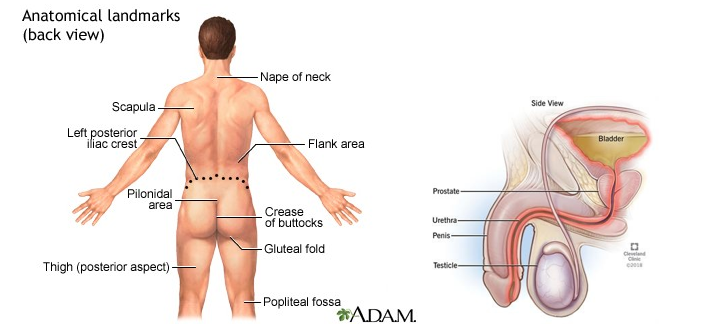The nurse is assessing a preschool-aged child who presents with flank pain, dysuria, and low-grade fever. To determine a possible urinary tract infection, which additional information should the nurse gather from the parent?
Pale urine.
Increased fluid intake.
New onset bedwetting.
Voiding every 4 hours.
The Correct Answer is C
To determine a possible urinary tract infection in a preschool-aged child who presents with flank pain, dysuria, and low-grade fever, the nurse should gather additional information from the parent about new onset bedwetting. New onset bedwetting can be a sign of a urinary tract infection in children. The other options (A, B, and D) are not directly related to determining a possible urinary tract infection in this situation.

Nursing Test Bank
Naxlex Comprehensive Predictor Exams
Related Questions
Correct Answer is ["B","D","F"]
Explanation
Answer: B, D, F
Rationale:
A) Understanding that nonstimulant medications show little benefit in treatment: This is inaccurate, as nonstimulant medications like atomoxetine can be effective for ADHD, especially in children who may not tolerate stimulants. Nonstimulants are often considered a viable alternative or adjunctive treatment.
B) Designating an established area for study: Creating a dedicated study space can help a child with ADHD focus on tasks and minimize distractions, which is beneficial for completing homework and improving concentration in a structured environment.
C) Anticipating being automatically entered into a specialized education plan: An Individualized Education Plan (IEP) or 504 Plan for ADHD is not automatic and typically requires evaluation and recommendation from school staff. The plan is individualized based on the child’s specific needs.
D) Knowing that medication is not always the best approach to treatment: Recognizing that treatment can involve behavioral interventions, counseling, and environmental adjustments, in addition to or instead of medication, reflects a balanced understanding of ADHD management.
F) Maintaining a consistent home schedule: Consistent routines help children with ADHD manage expectations and reduce stress, enhancing their ability to focus and transition smoothly between activities.
Correct Answer is A
Explanation
At the age of 3, children should be able to speak in simple sentences with a minimum of four words. This is a normal developmental milestone for this age group. Choices B, C, and D are not appropriate developmental milestones for speech and language skills for a 3-year-old child.
Whether you are a student looking to ace your exams or a practicing nurse seeking to enhance your expertise , our nursing education contents will empower you with the confidence and competence to make a difference in the lives of patients and become a respected leader in the healthcare field.
Visit Naxlex, invest in your future and unlock endless possibilities with our unparalleled nursing education contents today
Report Wrong Answer on the Current Question
Do you disagree with the answer? If yes, what is your expected answer? Explain.
Kindly be descriptive with the issue you are facing.
